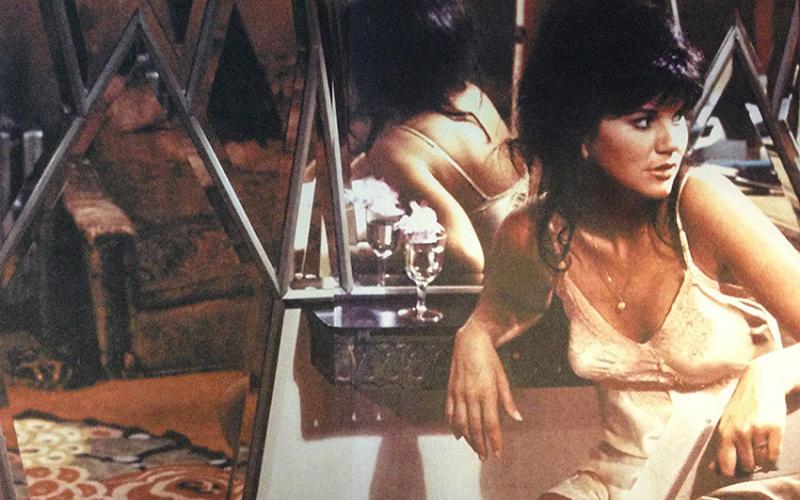Not too many people can say they have successfully recorded music as diverse as pop, jazz standards, Gilbert & Sullivan, folk/country, Mexican music, and more. Linda Ronstadt is one of those people. With 11 Grammy awards on her resume, she has topped the Billboard charts and even has a Tony Award nomination. In 2013 she announced a Parkinson’s diagnosis. As she told AARP that year, “No one can sing with Parkinson’s disease, no matter how hard you try.”
But that doesn’t mean she can’t voice what’s on her mind. On Tuesday, September 29, she will take the stage of the Valley Performing Arts Centerwith family friend Dan Guerrero to talk about her life, her career, and the music that inspired her. Here Ronstadt not only looks back on the diversity of her career but has plenty to say about the disease she’s battling and the politics that inhibit a possible cure.
Looking over your career, it’s safe to say you can’t be pigeonholed into one category. Was that a calculated approach or did you follow your instincts?
I hope you can’t. I’m a music fan, and if I heard different things that I admired greatly early enough, I tried to emulate that. If I didn’t hear it before I was ten, I couldn’t approach it with any authenticity—a visual artist friend said he could draw fish but couldn’t draw horses because he didn’t know horses. And I felt that way about music. Growing up in Tucson, I loved Mexican music and hoped I could sing it, but it was years before I could get aligned with a band and musicians and do the woodshedding I needed. Rock ‘n’ roll was on the radio, and I loved that. There was a reason why I made those choices though wildly diverse.
Is any of the work you’ve done—from Gilbert & Sullivan’s Pirates of Penzance to the Nelson Riddle-arranged What’s New to your hit songs—closer to who you are?
The Mexican music is closest to my heart. The first songs I heard were in Spanish. Those songs are so full of emotion and are so powerful. Mexicans value poetry above all else. The Aztecs felt poetry was essential for expressing any profound emotion. It was the most distilled way to express yourself. It’s a rich tradition. I love music from farmers living close to the land, and those songs are about that. Romance comes out of that concept.
Obviously your fans are going to be happy to see you on stage again, but what do these Q&As offer you personally?
It’s a chance to think about things in a different way. I get a lot of interesting questions from the audience. It’s an ongoing conversation with them. You get the benefit of hindsight, which is helpful. It will be based on my book Simple Dreams, and we have photos and videos from my career.
Given today’s emphasis on brand more than music, do you think the music industry was easier for you than it is for women today?
I think there’s plenty of music out there. Talent doesn’t leave the gene pool. The girl from Alabama Shakes [Brittany Howard] is a really, really good singer. I think Amy Winehouse was incredible. Adele is great. Taylor Swift writes great songs and is a great role model. She doesn’t have the Joni Mitchell voice, but she’s a good storyteller. It comes down to communication.
I don’t think it’s ever easy. You have to show up with something to say. It doesn’t matter how good a voice you have or how much talent, your message has to come across with startling clarity and resonate with the zeitgeist. It’s disturbing when I hear someone really good and the culture doesn’t pick up on it. The zeitgeist is so slow to Barack Obama, who is a person with great ability. The zeitgeist embraces a buffoon like Donald Trump. What’s happening to this culture that they talk about that? It’s disturbing that the idea that a Mexican national who is perfectly legal is getting beaten upbecause of Trump. It’s like the Weimar Republic beating up Jews in Germany. The harm can’t be undone.
How does your Parkinson’s influence your daily decisions?
Parkinson’s is about finding everything I can about stem cell research. Why don’t we have it? Making stem cells from your own cells and body fat. I don’t see anything wrong with fetal tissue. People who are desperately sick can’t use it. The Republicans have stopped that research and it’s really a shame. Stem cell research shows incredible promise for diseases like diabetes and cancer and spinal cord injuries. We have to have a sane, competent person in the White House, not a buffoon with the ability to use nuclear weapons.
Photography Courtesy: Facebook/LindaRonstadt











